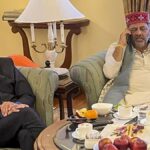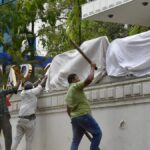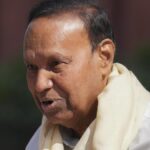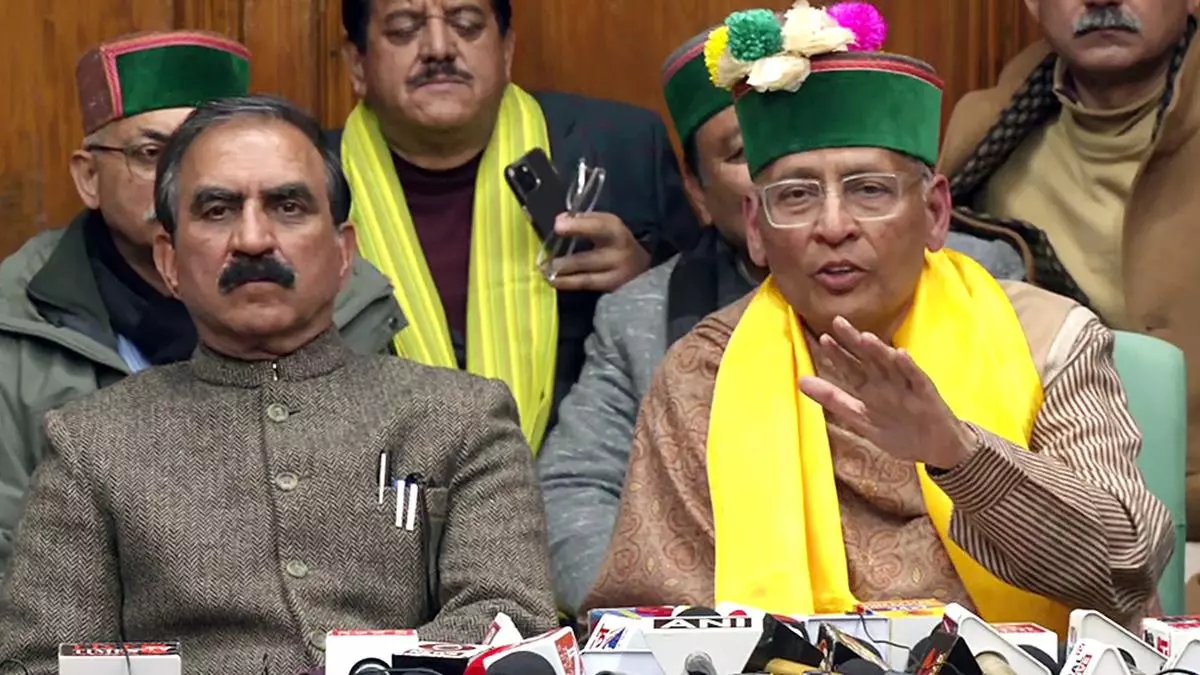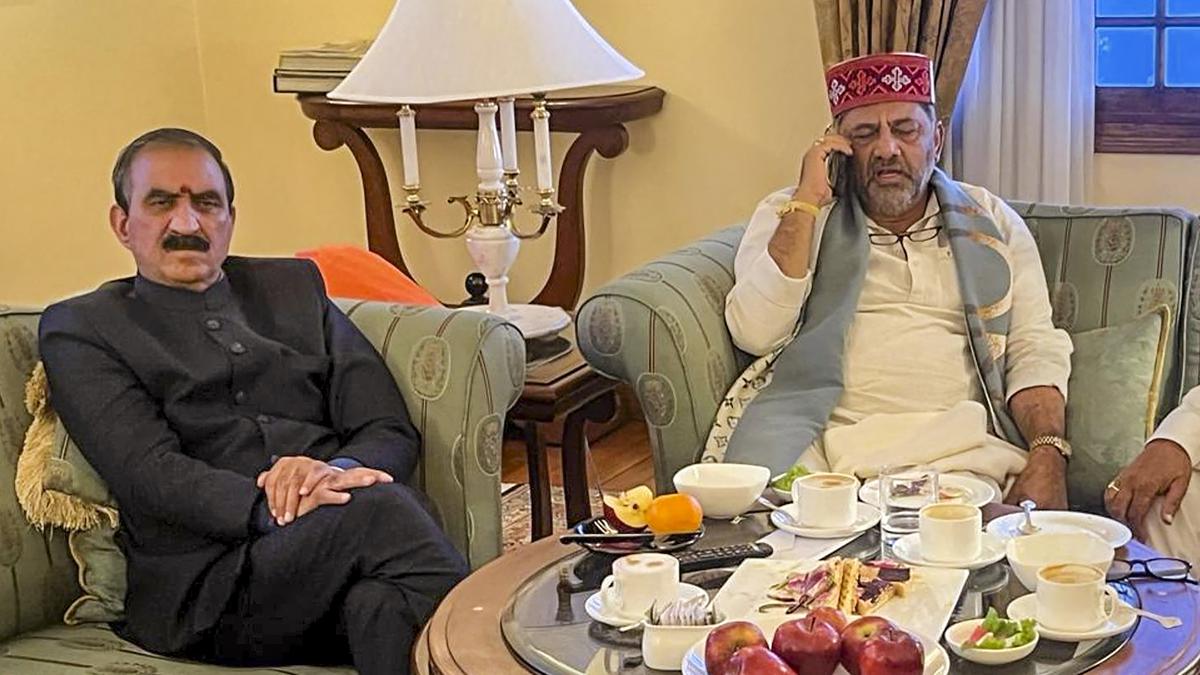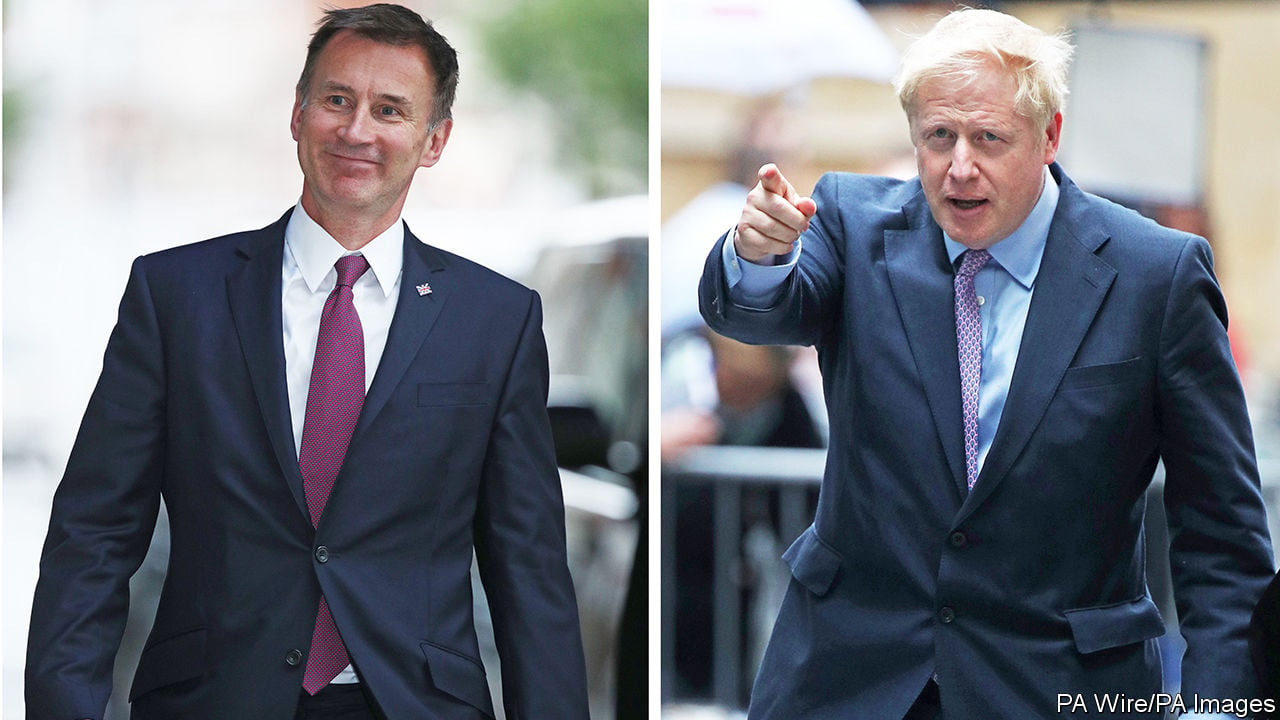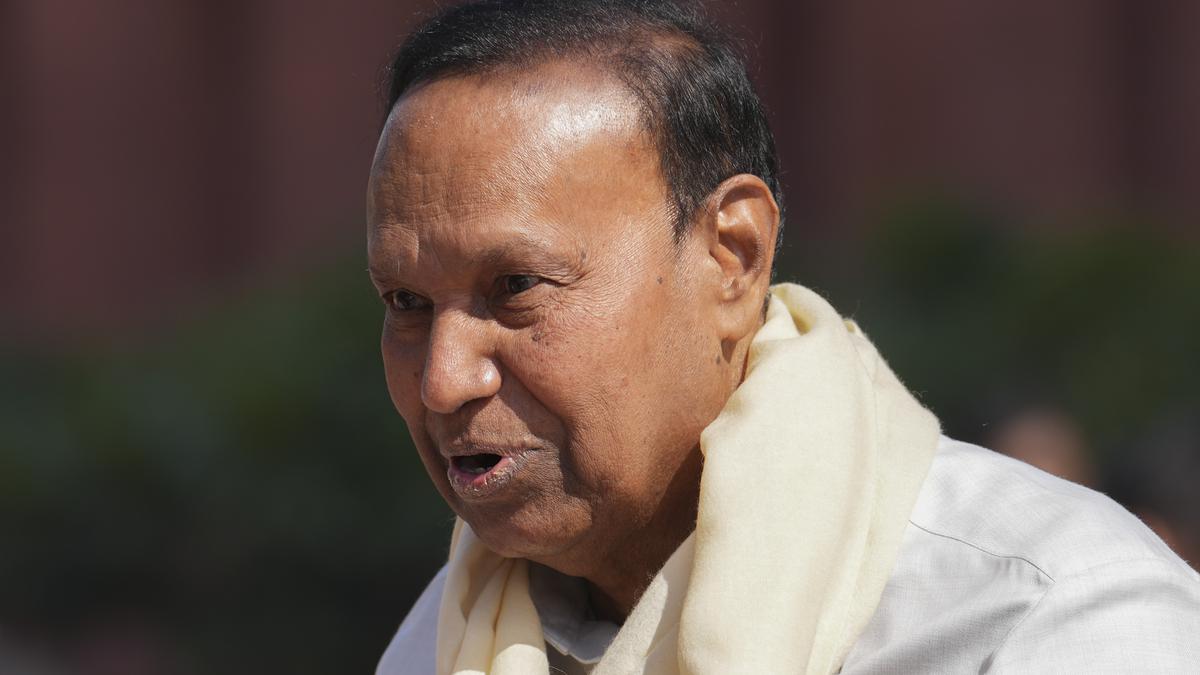[ad_1]
The recent turmoil within the Samajwadi Party and the Congress during the Rajya Sabha polls in Uttar Pradesh and Himachal Pradesh, has as highlighted the vulnerability of the Opposition against the BJP, which is determined to win all polls using saam (persuasion), daam (allurement), dand (coercion), and bhed (creating divisions).
Amidst the 15 seats contested across three states, the BJP’s acquisition of 10 seats triggered allegations of horse-trading, particularly in Uttar Pradesh where it exceeded its MLAs’ strength, and in Himachal Pradesh where it lacked the required party MLAs for victory. Meanwhile, in Karnataka, where the Congress won three out of four seats, there were reports of one BJP MLA crossing party lines to vote.
Political analyst Rasheed Kidwai told Frontline that the Rajya Sabha, like the office of the Governor, is increasingly appearing unwieldy and pro-establishment, defeating the lofty principles that used to justify it as a chamber of saner voices and representative of States.
“Rajya Sabha elections have, in effect, become an exercise of defections, corruption, use of money and muscle powers. The political class and the Election Commission collectively need to take a critical look at the way polls are conducted,” Kidwai said, wondering whether steps like mere nomination from parties according to their strength could be an option than the “farcical polls.” He felt the government should form a small all-party panel to look into Rajya Sabha polls reforms.
Of the 56 Rajya Sabha seats in this round of polls, the BJP has won 30, taking its total number in the Rajya Sabha to 97, and of the NDA to 117. That is far ahead of the 89 seats parties in the INDIA alliance together have. The BJP as the single largest party is much ahead of the Congress.
As a result, the BJP-led NDA is now four short of securing a simple majority of 121 seats in the Rajya Sabha, which currently has a strength of 240 as five seats are vacant. The BJP has always been keen to field extra candidates in the Rajya Sabha elections to make a quick kill whenever it was possible, as a majority in the Rajya Sabha has eluded the saffron party ever since it came to power winning two Lok Sabha polls in 2014 and 2019. BJP-backed independent candidate Kartikeya Sharma won from Haryana in 2022 despite the best efforts of the Congress to keep its flock together by packing off its MLAs to a resort in Chhattisgarh.
In the 2020 elections held for two seats in the Rajya Sabha, much attention was drawn due to the controversy surrounding the election of Ahmed Patel, then the political secretary of senior Congress leader Sonia Gandhi. Both the Congress and the BJP could easily win one seat each, but the BJP fielded an extra candidate. A panicked Congress packed off all its MLAs to a resort in Bengaluru, but still, two Congress MLAs indulged in cross-voting. Patel could win the seat only because of a technical error by the two rebel MLAs, who showed their voter slip to unauthorised persons, and the Election Commission later declared their vote invalid.
“Horse trading has become a new normal in Indian politics today,” said former Chief Election Commissioner S.Y. Quraishi. “Not that it is a new phenomenon. It has been there for decades which necessitated the first anti-defection Act in 1985. When it proved ineffective, it was tightened in 2003. Yet, the problem of defections has continued. In fact, it has gone from bad to worse. Only the price tag has increased.”
The former CEC suggested that one possible way out is that defectors should not only resign as they are currently expected to do but should be debarred from contesting for at least six years. “Not that it would solve the problem. Money will still tempt them to resign to bring down the ruling party, only the amount would go up. Enough to keep defectors at home forever and enjoy the bounty,” Quraishi said.
There is another issue with the Sabha elections, according to experts. Party whips are not issued in the election for the Upper House. A party cannot act against MLAs for cross-voting under the 10th schedule as no whip is issued in the Rajya Sabha election.
Interestingly, going against this norm, parties had issued a three-line whip to its MLAs. The Congress, which was sensing trouble in Himachal Pradesh, had issued a whip asking its MLAs to vote for the Congress candidate Abhishek Singhvi, but later backtracked on it after the BJP went to the Election Commission, challenging the Congress move. Interestingly, the same BJP had issued a whip in Karnataka, but one of its MLAs cross-voted there. In Uttar Pradesh, where seven Samajwadi Party MLAs cross-voted for the BJP and one abstained from voting, SP leader Akhilesh Yadav had threatened to take action against them.
In Himachal Pradesh, particularly the victory of BJP candidate Harsh Mahajan despite the party having only 25 MLAs as against 40 of the Congress in the 68-member Assembly, is a grim reminder of electoral ploy. With six Congress MLAs and three independents voting in favour of the BJP candidate, it was a tie with Singhvi and Mahajan getting an equal number of 34 seats. As per the practice, a lottery was done, which went in the favour of the BJP candidate. “The lottery system in the event of a tie is most unfair and bizarre against all norms of democratic principles,” said Kidwai. “A thorough and urgent review is required.”
Cross-voting and party disqualification
There is another ground in which the 10th schedule can be applied, and that is if the party to which the members belong seeks their disqualification from the Speaker, arguing that the member has voluntarily given up the membership of the party.
The case of Rajya Sabha MP Sharad Yadav, against whom the then JD(U) President Nitish Kumar had sought action for anti-party activities in 2017, is a case in point. The JD(U) had then argued that Yadav had “voluntarily given up the membership” of the party by attending a rally of the Opposition RJD, going against the party’s direction. The then Rajya Sabha Chairman M Venkaiah Naidu had expelled Yadav and another JD(U) MP, Ali Anwar Ansari, on the charge of defection, resorting to the same rule.
“The 10th schedule does not apply to voting in Rajya Sabha polls, but if a party thinks its members went against the party’s directive, it can seek their disqualification, arguing that they have voluntarily given up their membership by acting against the party’s directives/interests,” said former Secretary-General of Lok Sabha PDT Achary. “In the case of MLAs, it is the Speaker who has to decide. He can interpret such an act as voluntary giving up membership, and the MLAs can lose membership of the House.”
In Himachal Pradesh, Cross-voting by the six Congress MLAs has put the Sukhvinder Singh Sukhu-led government in the crosshairs as the State government is facing the Budget session. Moreover, the loss of Singhvi in the Congress-ruled State will rankle the party for a long time, even if the current crisis over the State government is resolved.
The Congress central leadership has stepped in to firefight the crisis, having dispatched four senior leaders to Shimla, even as former Chief Minister Virbhadra Singh’s son, Vikramaditya Singh, a minister in the Sukhu government, resigned on Wednesday, alleging ‘humiliation’ to him and his father.
In a high political drama, 15 BJP MLAs, including Leader of Opposition and former Chief Minister Jairam Thakur, were suspended and marshalled out of the Assembly. Thakur accused the Congress government of “dadagiri” and “murder of democracy”, saying it was the first time that MLAs have been suspended in any State Assembly to pass the Budget.
Prem Singh, a former teacher at Delhi University and a fellow of the Indian Institute of Advanced Study, Shimla, remarked, “The cross-voting that occurred on February 27 in the elections for 15 Rajya Sabha seats, seemingly driven by the MLAs’ ‘antaratma ki awaz’ (inner voice), represents yet another ‘landmark’ in employing political strategies to secure election victories through any means necessary.”
Singh argued that, in fact, this cross-voting presents another example of the death of ideology in Indian politics and democracy—the ideology of the Constitution—under the policies of which the overall development of the country was designed in the light of the Directive Principles of State Policy, ensuring the accountability of parties/leaders towards the people of India.
[ad_2]
Source link

